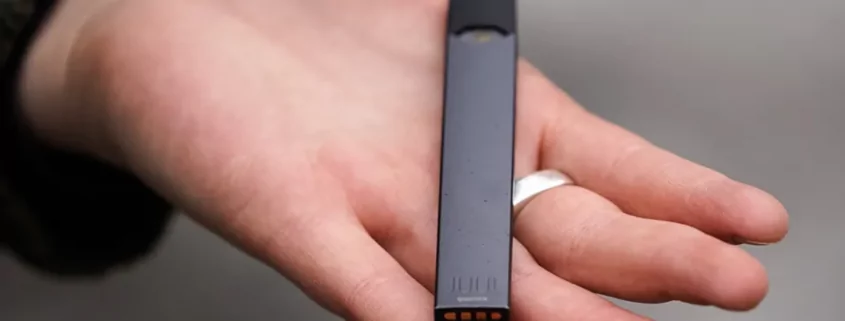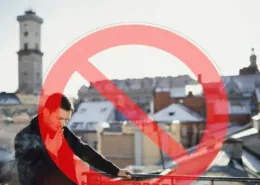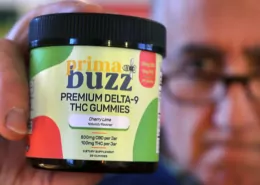Minnesota Reveals $60.5 Million Settlement with Juul
Minnesota leaders have recently announced a groundbreaking settlement with Juul Labs, the e-cigarette manufacturer, amounting to $60.5 million. The settlement aims to address the issue of youth vaping, which has become a growing concern in the state. This agreement comes after a trial that was resolved prior to going to the jury, and it marks a significant step in holding Juul accountable for its role in the resurgence of youth tobacco use.
While the total settlement amount is substantial, the state of Minnesota will not receive the entire sum. Approximately $8.6 million will be deducted to cover litigation costs, along with an estimated $9 million in attorneys’ fees. As a result, the state is expected to be left with approximately $43 million to allocate towards combating tobacco use, vaping, and smoking.
Minnesota Attorney General Keith Ellison and Governor Tim Walz have expressed their intention to utilize the settlement funds to protect the younger generation from the dangers of tobacco. The specifics of how the funds will be allocated were not disclosed until now, but the primary focus is to implement measures that deter tobacco use and vaping among minors.
“We’re going to get out there and protect our kids,” stated Ellison during a news conference at the State Capitol. The event was attended by lawyers, advocates, and politicians who have been dedicated to holding Juul accountable over the past four years. The attorney general emphasized that going to trial was a crucial signal that these actions would not go unpunished.
According to a spokesperson for Attorney General Ellison, the settlement amount exceeds the estimated $30 million the state would have received if they had settled before going to trial. In addition to recovering more than Juul’s profits from vape sales, taking the case to trial serves as a powerful deterrent for similar companies in the future. It sends a clear message that the state of Minnesota is prepared to put manufacturers in front of a jury to ensure accountability.
Prior to the emergence of vaping, Minnesota had made significant strides in reducing youth tobacco use. However, Juul’s entry into the market with its enticing flavors, vibrant advertisements, and attractive designs reversed the progress made since the state’s $6.5 billion settlement with Big Tobacco 25 years ago.
The settlement with Juul introduces a range of restrictions and guidelines that aim to curb youth vaping. Juul is now prohibited from marketing to children and young adults, utilizing models under the age of 35, and distributing product samples. The company is also restricted from sponsoring events, advertising outdoors or on social media, and using apparel for promotional purposes.
To further address the issue, Juul is banned from selling flavored products, required to disclose the nicotine contents of their products, and obligated to establish a retailer compliance program in Minnesota stores to ensure proper age verification during sales.
In addition to these measures, the settlement necessitates that Juul publishes internal documents related to the litigation. Moreover, co-defendant Altria, which acquired a $12.8 billion minority share in Juul in December 2018, will be subject to restrictions on the sale of its own e-cigarette products in the future.
Leading up to the trial, the state had expressed particular concern about Juul’s marketing campaign called “Vaporize,” which heavily relied on colorful ads, social media campaigns, and appealing flavors such as mango, cucumber, crème brûlée, and fruit medley. However, in 2019, Juul ceased the distribution of fruity-flavored pods and took steps to address the issue. The company suspended all advertising in the United States and shut down its social media accounts.
Furthermore, last summer, the federal Food and Drug Administration (FDA) took action by prohibiting Juul from selling its vaping device along with tobacco- and menthol-flavored cartridges. Although Juul appealed the decision, the courts stayed the order pending the outcome of the appeal.
During the Capitol news conference, Katy Johnson, a 21-year-old University of Minnesota student working with the Minnesota nonprofit Tobacco-Free Alliance, shared her personal experience with vaping. Johnson revealed that she had taken her first hit off a Juul device at the age of 13 but managed to quit at 20.
She emphasized that vaping had become normalized among her peers, and many of them were enticed by the appealing flavors and marketing tactics employed by companies like Juul. Johnson firmly stated that her decision to vape was not an accident but rather a result of predatory practices targeting young individuals.
Juul’s Response and Settlement with Other States
Austin Finan, a spokesperson for Juul, released a written statement reiterating the company’s commitment to resolving legal challenges. Finan highlighted that Juul had reached settlements with 48 states and territories, contributing over $1 billion towards combating underage use and supporting cessation programs.
It’s important to note that Altria, formerly known as Philip Morris, became a defendant in the case in 2020 due to its minority share investment in Juul. Altria, based in Richmond, Virginia, and Juul, based in San Francisco, have faced legal scrutiny together in this matter.
Conclusion
The $60.5 million settlement between Minnesota and Juul represents a significant step towards addressing the issue of youth vaping. Minnesota leaders, including Attorney General Keith Ellison and Governor Tim Walz, are determined to utilize these funds to fight against tobacco use, vaping, and smoking, particularly among minors. The restrictions placed on Juul and the disclosure of internal documents ensure transparency and provide valuable insights for future actions.
With this settlement, Minnesota aims to send a strong message that companies will be held accountable for their role in contributing to the resurgence of youth tobacco use. The state’s commitment to protecting its younger generation sets an example for other jurisdictions and establishes a precedent for taking legal action against similar entities.
- Is Vaping and Driving Illegal in Vermont? (2025 Guide) - July 18, 2025
- Vaping Laws in Vermont : A Comprehensive Guide for 2025 - July 18, 2025
- Malaysian Sarawak Considers Banning Vape Product Sales - July 18, 2025









